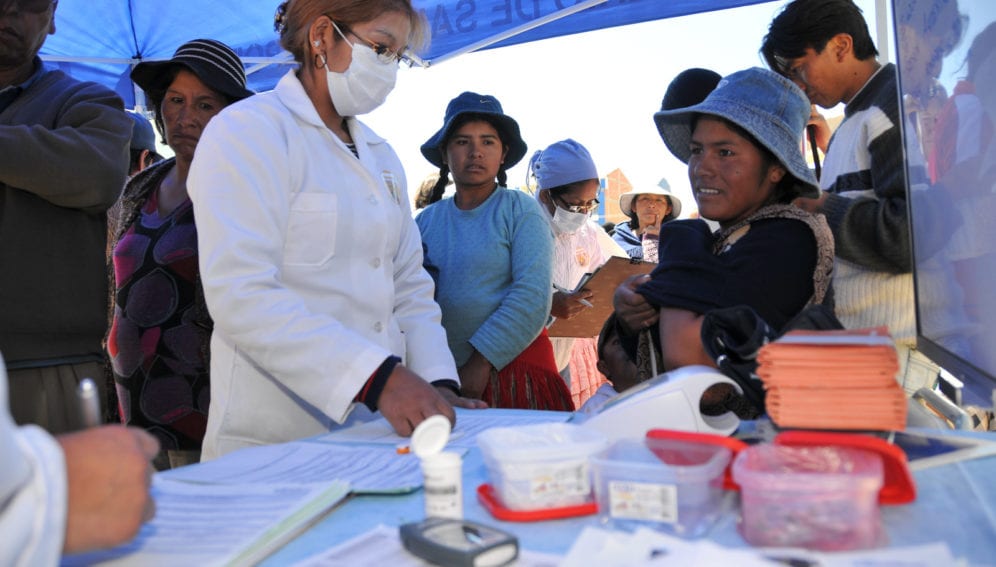By: Lou Del Bello
Send to a friend
The details you provide on this page will not be used to send unsolicited email, and will not be sold to a 3rd party. See privacy policy.
[LONDON] The UK Department for International Development (DFID) has extended its support for the Drugs for Neglected Diseases initiative's research and development work by pledging a total of £30 million (US$46.5 million) over the next five years.
The DNDi is a non-profit organisation devoted to finding new treatments for infectious diseases endemic in poor countries.
DFID supported DNDi with two previous grants in 2006–2008 and 2009–2013.
The 2013–2018 grant is part of a DFID investment of £138 million (US$214 million) in nine 'product development partnerships' intended to deliver new health tools to address poverty-related diseases.
"This grant is a tremendous boost for the new compounds that we are bringing through the research and development pipeline. At this stage of maturity of our portfolio, solid funding and partnership count more than ever," Bernard Pécoul, executive director of DNDi, said in a press release on 22 August.
In its ten-year existence, DNDi and its partners have developed and made available six improved treatments: two for malaria, and one each for Chagas disease, sleeping sickness, visceral leishmaniasis in Africa and visceral leishmaniasis in Asia.
The initiative's portfolio contains 11 promising drug compounds in clinical or pre-clinical stages of development for diseases such as sleeping sickness, leishmaniasis, Chagas disease, filarial diseases, paediatric HIV and malaria.
"We support research to provide the evidence needed to inform policy and practice in international development," a DFID spokesman tells SciDev.Net. "By funding organisations such as DNDi that are developing targeted solutions at affordable cost for developing countries, DFID supports research into treatments where otherwise there would be none."
DFID spokesman acknowledges that "there are different challenges in developing solutions to be used in difficult environments". It is important to ensure that products are suitable for use in a tropical environment, that supply chains are working, that drugs are delivered at the right time and that people are aware of them and able to use them, the spokesman says.
"Each disease and country will have context-specific issues, and research is very important to identify cheaper and more effective treatments," the spokesman says.
“At this stage of maturity of our portfolio, solid funding and partnership count more than ever.”
Bernard Pécoul,
executive director of DNDi
Jean-François Alesandrini, DNDi's advocacy and fundraising director, says: "The UK's commitment to our initiative will be crucial for the next years".
He adds that new treatments will be implemented in cooperation with partners in the affected countries to ensure their sustainability and effectiveness.
Implementation is a priority for DNDi, and it aims to bring actors such as ministries of health, regulatory agents, research institutions and NGOs together to develop common research standards and clinical capacity in endemic countries.
It has helped to establish three regional research networks that assist in defining patients' needs, strengthening local capacities, conducting clinical trials, and facilitating the registration and uptake of new treatments.
The first of these networks, the Leishmaniasis East Africa Platform created in 2003, helped implement a combination of two intramuscular treatments to fight visceral leishmaniasis. Its success spurred the formation of two more: one for sleeping sickness in Congo and one targeting Chagas disease in Latin America.
One challenge facing DNDi and other drug developers is regulation in affected countries.
"Obtaining the necessary approvals from the authorities in many developing countries is a long and costly process that can considerably delay access to essential medicines," Alesandrini says.
"But with around 150 new products for neglected diseases in development, regulators have a crucial role to play in assessing the benefits and risks of these new health tools, and harmonisation among them is needed."














